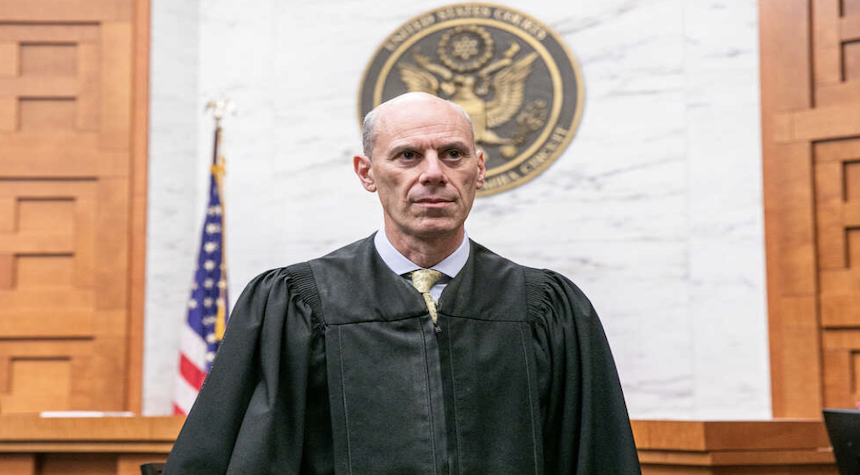District Court Judge James Boasberg has voiced his apprehensions about the Trump administration’s compliance with federal court rulings. This information has surfaced in a memo that some interpret as revealing a potential judicial bias against the White House. This comes to us from the Federalist, which obtained the document in question.
According to reliable sources, the memo, drafted during a Judicial Conference in March, contains an account of a conversation between Judge Boasberg and Chief Justice of the Supreme Court, John Roberts. Boasberg reportedly expressed a sentiment shared by some of his colleagues that there was a possibility of noncompliance by the Trump administration with federal court rulings, potentially leading to a constitutional crisis.
The memo indicates that Chief Justice Roberts expressed his hope that such a crisis would not materialize. The document also notes that Roberts described his interactions with President Trump as ‘civil and respectful’, even referring to a moment when the President thanked him during the State of the Union address.

Days after this conference, Judge Boasberg halted the Trump administration’s application of the Alien Enemies Act to expedite the deportation of members of the Venezuelan Tren de Aragua gang, a move that the administration justified. Boasberg referred to the administration’s actions as “incredibly troubling and problematic”. He further pointed out the act’s unprecedented application, which had previously been used in times of declared war.
The Supreme Court eventually overturned this ruling with a narrow 5-4 decision. However, the emergence of the memo and its content has led to suggestions by the Federalist that Judge Boasberg and some of his fellow district judges maintained a bias against the Trump administration, despite the latter’s compliance with every court order handed down to them.
This development raises important questions about the impartiality of the judiciary, the respect for institutional checks and balances, and the importance of the presumption of “regularity” in public administration.


